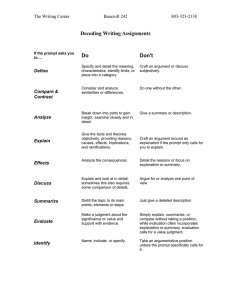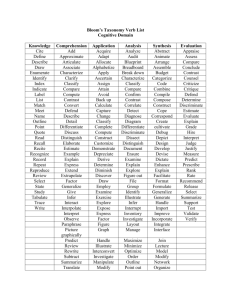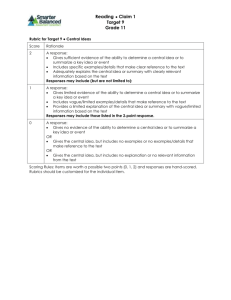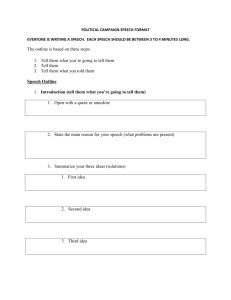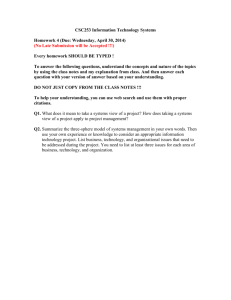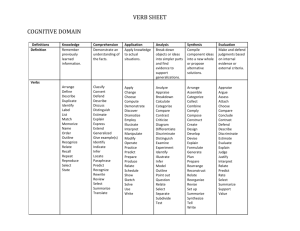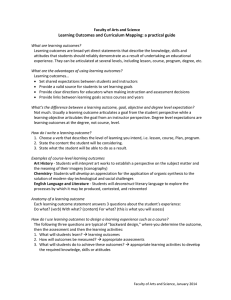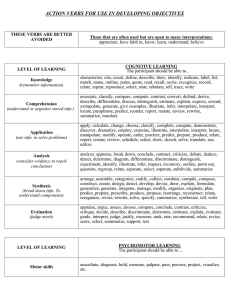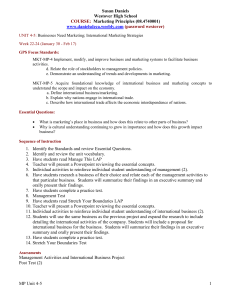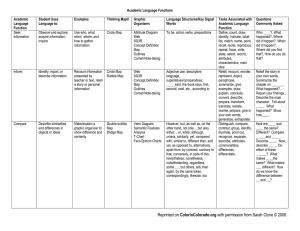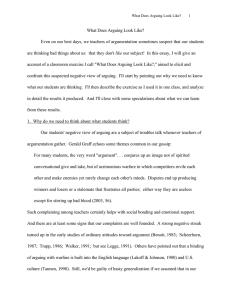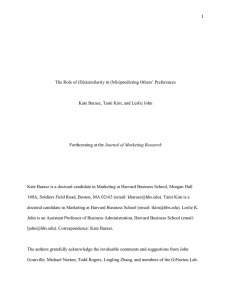the exercise as a Microsoft Word
advertisement
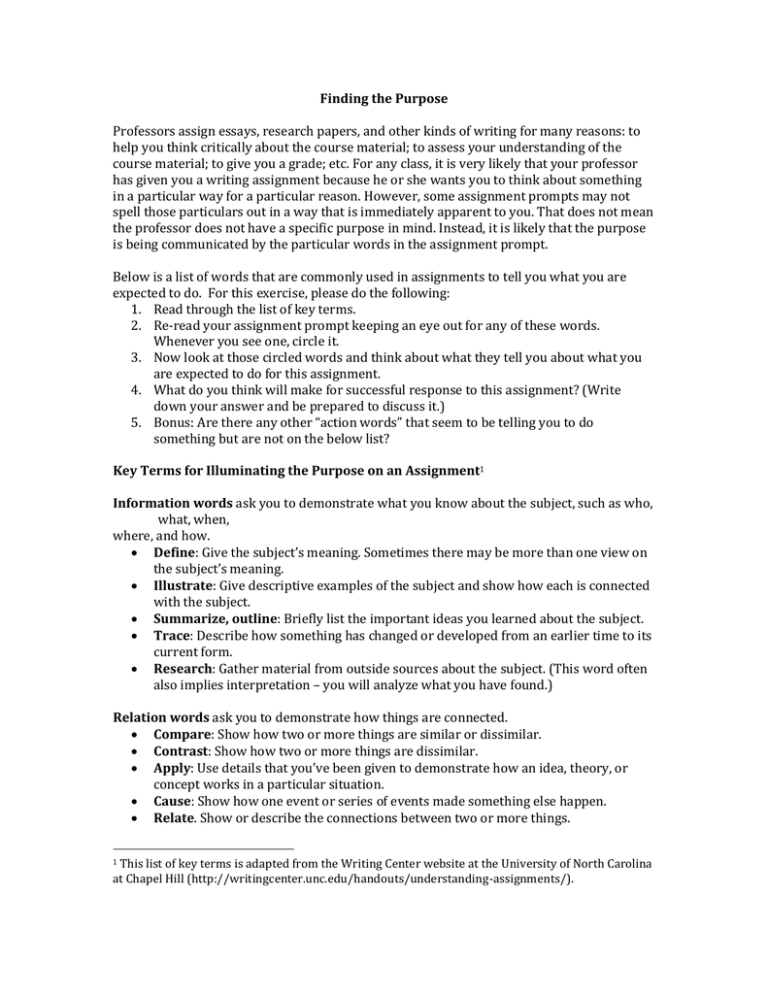
Finding the Purpose Professors assign essays, research papers, and other kinds of writing for many reasons: to help you think critically about the course material; to assess your understanding of the course material; to give you a grade; etc. For any class, it is very likely that your professor has given you a writing assignment because he or she wants you to think about something in a particular way for a particular reason. However, some assignment prompts may not spell those particulars out in a way that is immediately apparent to you. That does not mean the professor does not have a specific purpose in mind. Instead, it is likely that the purpose is being communicated by the particular words in the assignment prompt. Below is a list of words that are commonly used in assignments to tell you what you are expected to do. For this exercise, please do the following: 1. Read through the list of key terms. 2. Re-read your assignment prompt keeping an eye out for any of these words. Whenever you see one, circle it. 3. Now look at those circled words and think about what they tell you about what you are expected to do for this assignment. 4. What do you think will make for successful response to this assignment? (Write down your answer and be prepared to discuss it.) 5. Bonus: Are there any other “action words” that seem to be telling you to do something but are not on the below list? Key Terms for Illuminating the Purpose on an Assignment1 Information words ask you to demonstrate what you know about the subject, such as who, what, when, where, and how. Define: Give the subject’s meaning. Sometimes there may be more than one view on the subject’s meaning. Illustrate: Give descriptive examples of the subject and show how each is connected with the subject. Summarize, outline: Briefly list the important ideas you learned about the subject. Trace: Describe how something has changed or developed from an earlier time to its current form. Research: Gather material from outside sources about the subject. (This word often also implies interpretation – you will analyze what you have found.) Relation words ask you to demonstrate how things are connected. Compare: Show how two or more things are similar or dissimilar. Contrast: Show how two or more things are dissimilar. Apply: Use details that you’ve been given to demonstrate how an idea, theory, or concept works in a particular situation. Cause: Show how one event or series of events made something else happen. Relate. Show or describe the connections between two or more things. This list of key terms is adapted from the Writing Center website at the University of North Carolina at Chapel Hill (http://writingcenter.unc.edu/handouts/understanding-assignments/). 1 Interpretation words ask you to defend your own ideas about the subject. Typically, these words mean the professor is looking for something beyond your opinion; in other words, your ideas need to be supported by concrete evidence. Assess: Summarize your opinion of the subject and measure it against something. Explain, justify: Give reasons or examples to demonstrate how or why what you are arguing is the best explanation. Evaluate, respond: State your opinion of the subject as good, bad, or some combination of the two, with examples and reasons. Support: Give reasons or evidence for your claims (be sure to state clearly what it is that you are claiming or arguing). Synthesize: Put two or more things together that have not been put together in class or in your readings. Do not just summarize one and then the other and say that they are similar or different; instead you need to provide a reason for putting them together that runs through the paper. Analyze: Determine how individual parts create or relate to the whole, figure out how something works, what it might mean, or why it is important. Argue: Take a side and defend it with evidence against the other side.
